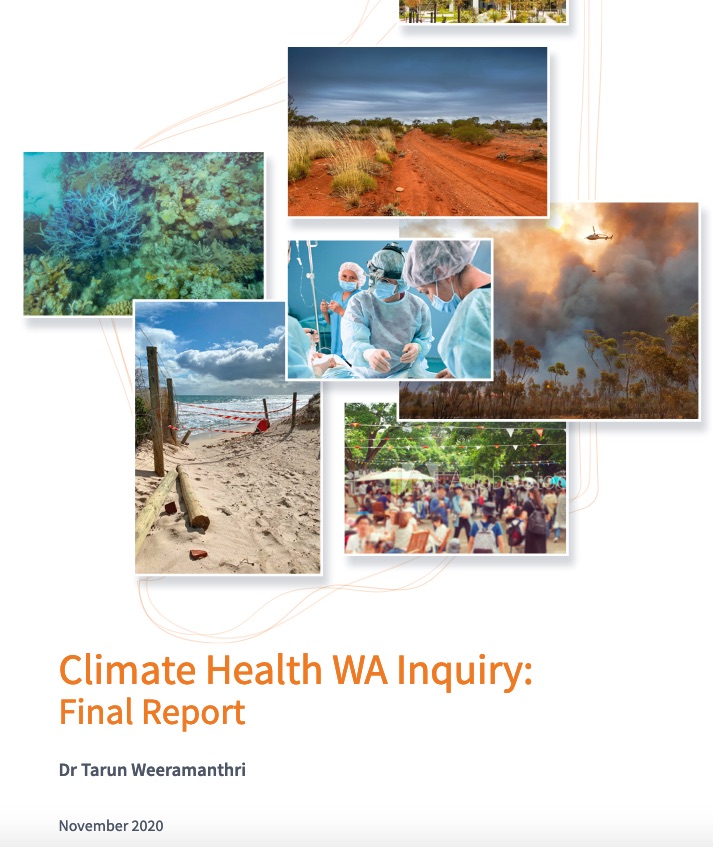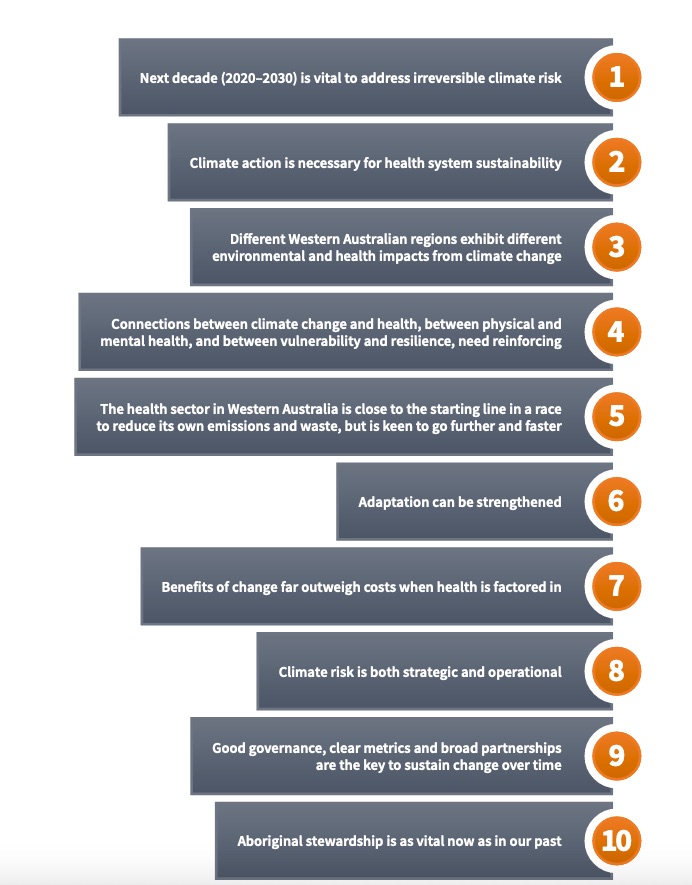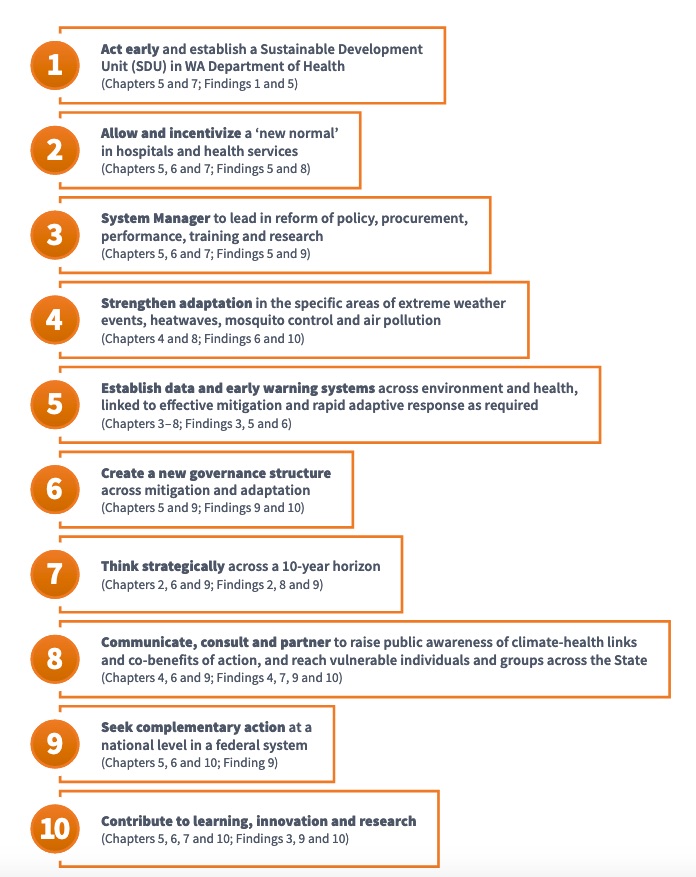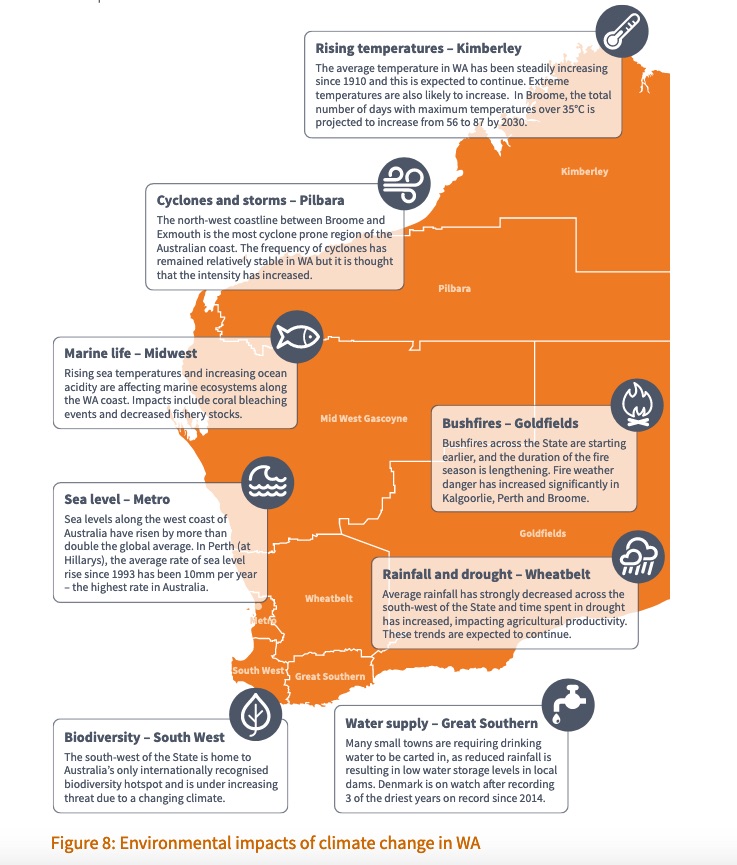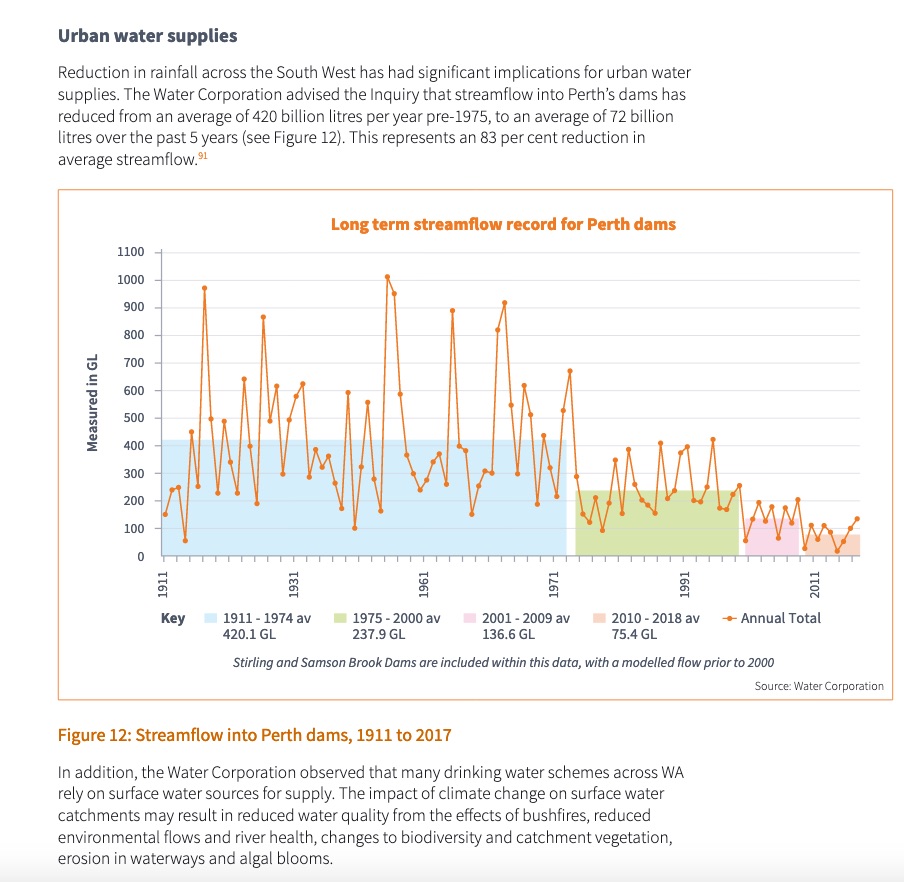At @CroakeyNews we've been looking forward to the release of this report for a while now: Climate Health WA Inquiry: Final Report https://ww2.health.wa.gov.au/-/media/Corp/Documents/Improving-health/Climate-health/Climate-Health-WA-Inquiry-Final-Report.pdf #ClimateCrisis #PublicHealth #AusPol
It comes in a very big week for #ClimateHealth news, as you can see from recent @CroakeyNews articles: https://www.croakey.org/category/global-health-and-climate-change/climate-change/
To put the new report in context, it's worth re-reading our April 2019 coverage of WA's Sustainable Health Review, which led to the inquiry & report released today https://www.croakey.org/new-review-calls-for-transformation-in-health-its-about-western-australia-but-of-wider-relevance/
We are in a climate emergency with an ever-narrowing window of opportunity for action, and the wheels of government move so slowly, even when there is a commitment to action. At a federal level, they're not even turning, just back-pedalling.
The report begins: "To date, societal action has not proved timely or sufficient, either globally or in Australia, to counter the evident public health threat from climate change....
"Rising temperatures and changing climatic conditions, including more frequent and intense extreme weather events, have been linked with both direct and indirect impacts on human health, including heat-related illnesses, injury, and infectious and respiratory diseases.
And the health sector must get its own house in order; it's "a significant contributor to emissions, with a recent Australian study estimating that the sector contributes around seven per cent of all national greenhouse gas emissions"
Here are the report's 10 key findings. From #1: Next decade (2020–2030) is vital to address irreversible climate risk to #10: Aboriginal stewardship is as vital now as in our past
And 10 key recommendations, including "Seek complementary action at a national level in a federal system" ping @GregHuntMP @Bowenchris
Review was 'place-based' ie acknowledging regional differences within such a vast state as WA - vulnerable to climate change, with falling rainfall in SW, drying interior, lengthening fire season, cyclones & extreme weather events, rate of sea-level rise almost 3 X global average
"To our knowledge, this is the first statutory inquiry anywhere in the world focused on the health impacts of climate change."
Report notes @WHO has been publishing reports on climate change & health since 1990s. It has a unit dedicated to the issue, doing awareness-raising, advocacy, monitoring evidence, building capacity, supporting countries to address etc. [This raises an obvious Q for Oz Gov!]
"Of the developed market nations, Australia has been recognised as being the second most vulnerable to the effects of climate change, after Israel." But report reminds us that Fed Gov has failed to act on 2017 report calling for a National Strategy on Climate & Health
For WA, risks include: extreme weather events including prolonged heatwaves, more dangerous bushfire conditions, more intense cyclones, coastal erosion and biodiversity loss...
"In some areas, such as Broome, days with temperatures over 35°C could be experienced for around a third of the year by late in the century. In Perth, the numbers of days above 35°C and above 40°C are both expected to increase by 150 per cent over the same timeframe.
Really impt to remember this when we're discussing #HeatwaveHealth - it's not only an on-land issue: "The number of marine heatwave days a year increased by over 50 per cent between 1987 and 2016, compared to the period from 1925-54.
"In December 2019, the WA coastline experienced its most widespread marine heatwave since reliable recording began in 1993, with ocean temperatures 1.5 to 2°C warmer than normal for that month.
On the importance of local knowledge & understanding regional context: "The South West has experienced a marked drying trend; since 1970, average rainfall between May and July in this region has decreased by around 20 per cent compared to the average from 1900 to 1969.
"Since 1999, this reduction has increased to around 26 per cent. These drier, hotter conditions are leading to declines in soil moisture due to increased water loss from plants and soils, which exacerbates the drought conditions.
"Over this century, average rainfall is predicted to strongly decrease in the South West, and time spent in drought is expected to increase. Meanwhile, annual rainfall has increased over northern and interior WA, especially in the north-west during the tropical season.
"Tropical cyclones are responsible for most of the extreme rainfall events across north-west WA and generate up to 30 % of the total annual rainfall near Pilbara coast. Heavy rainfall is expected to become more intense across the north, with prolonged periods of drying in between
Water shortages are already affecting WA communities: earlier this year the WA Gov delivered 11 million litres of drinking water to 10 towns in the SW, with other towns also needing deliveries. Water for livestock also being trucked in.
WA is a big food producer for the nation and exports. Climate changes are hitting agricultural productivity hard already: droughts, changes in pests & pathogens, extreme weather. WA’s farming region has experienced the greatest decrease in productivity across the nation.
Climate conditions lowered agricultural productivity in WA by an average of 7.7 per cent between 2000–01 and 2014–15.98
WA's bushfire season has  from traditional period of Dec-Feb, to Nov-May, Commissioner for Fire and Emergency Services told the inquiry.
from traditional period of Dec-Feb, to Nov-May, Commissioner for Fire and Emergency Services told the inquiry.  less rain and drier conditions. This has also reduced opp for prevention measures such as prescribed burns
less rain and drier conditions. This has also reduced opp for prevention measures such as prescribed burns makes bushfires more hazardous.
makes bushfires more hazardous.
 from traditional period of Dec-Feb, to Nov-May, Commissioner for Fire and Emergency Services told the inquiry.
from traditional period of Dec-Feb, to Nov-May, Commissioner for Fire and Emergency Services told the inquiry.  less rain and drier conditions. This has also reduced opp for prevention measures such as prescribed burns
less rain and drier conditions. This has also reduced opp for prevention measures such as prescribed burns makes bushfires more hazardous.
makes bushfires more hazardous.
Aboriginal people told the inquiry the effects of these fires were the “biggest killer” of country, on “artefacts, culture, food supply, animals, insects, plant foods, [and] ceremonial lands”.

 Read on Twitter
Read on Twitter